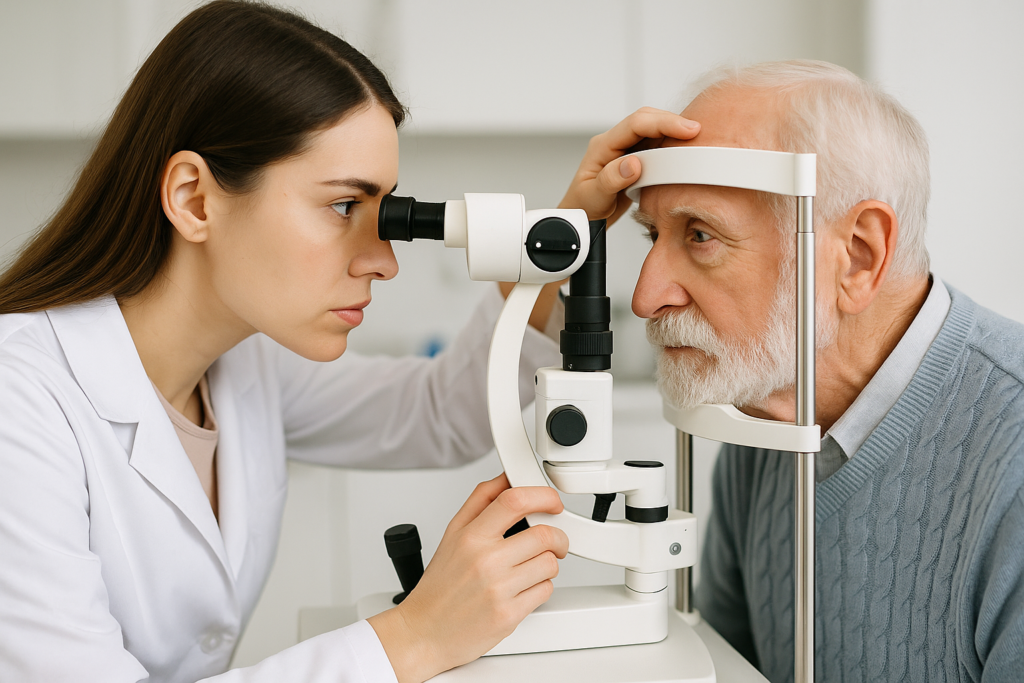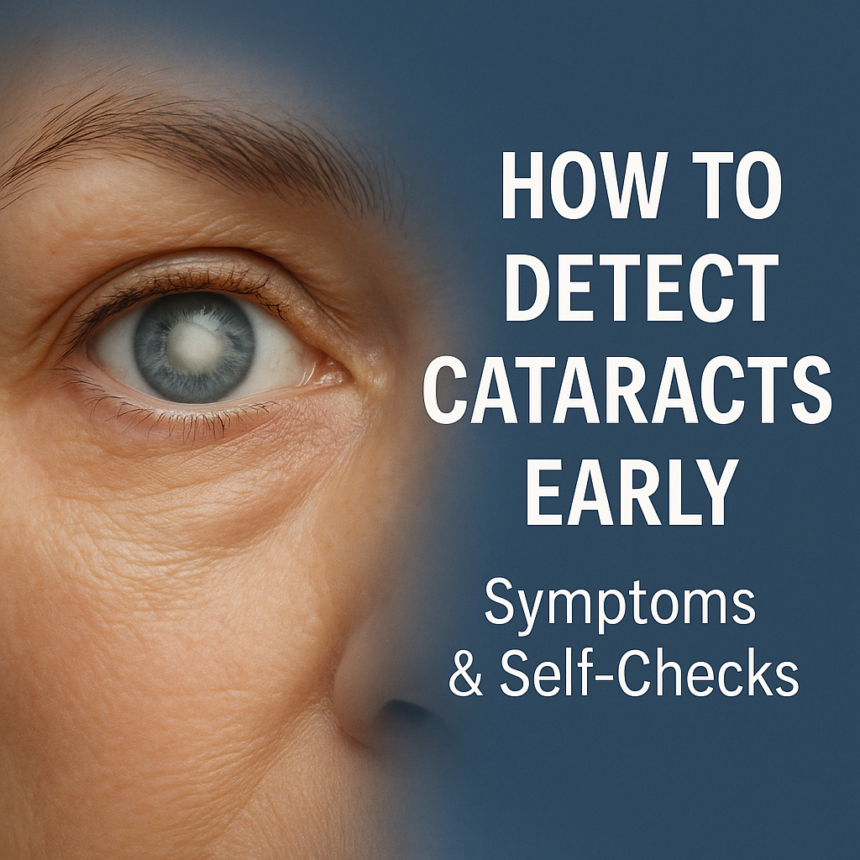By Dr. Katherine Seng – Ophthalmologist, www.eyekath.com
Cataracts are one of the most common causes of vision loss worldwide, especially as we get older. The good news? They’re treatable, and if detected early, your vision can be restored quickly and effectively. But many patients aren’t aware of the early signs until their daily activities — driving, reading, recognising faces — start becoming difficult.
In this article, I’ll share how you can spot the warning signs of cataracts, when to see an eye doctor, and why early detection matters.

What Exactly is a Cataract?
A cataract happens when the natural lens inside your eye becomes cloudy. This cloudiness blocks light from passing clearly to the retina, making your vision blurry or hazy.
Most cataracts develop slowly over years, but some can progress faster, especially if caused by injury, certain medications, or health conditions like diabetes.
Early Signs and Symptoms of Cataracts
You might not notice anything at first — in fact, early cataracts can be so subtle that patients often blame poor lighting or “just needing new glasses.” Watch out for these changes:
- Cloudy, blurred, or dim vision – Things may start looking hazy, as though you’re looking through a foggy window.
- Difficulty seeing at night – You may find it harder to drive in low light or notice more glare from oncoming headlights.
- Increased sensitivity to light and glare – Bright sunlight or indoor lights might suddenly feel uncomfortably intense.
- Fading or yellowing of colours – Colours lose their vibrancy and may look duller than before.
- Frequent changes in your glasses prescription – If you need new lenses more often than usual, cataracts may be the cause.
- Double vision in one eye – Sometimes, cataracts can cause overlapping or ghost images.
Self-Checks You Can Do at Home
While these aren’t a replacement for an eye exam, they can give you clues:
- Cover one eye at a time and check if the other sees clearly.
- Look at bright colours — do they appear faded or yellowish?
- Stand under bright lights — do you feel unusual glare or halos?
- Compare day and night vision — is night driving harder than before?
If you notice changes, especially if they affect both eyes, it’s time to see an eye doctor.
Why Early Detection Matters
Cataracts can progress silently. By the time your vision is severely affected, your daily activities and safety — such as driving — may be at risk. Early detection allows your ophthalmologist to:
- Monitor the cataract’s growth
- Recommend lifestyle adjustments
- Plan surgery at the right time for optimal results
Early surgery generally means faster recovery and better visual outcomes.

When to See an Eye Doctor Immediately
Make an appointment right away if you experience:
- Sudden, painless vision loss
- Eye pain or redness
- Flashes of light or sudden floaters
- Rapidly worsening vision in one or both eyes
These could indicate urgent eye conditions beyond cataracts.
The Takeaway
Cataracts are common, but they don’t have to steal your vision. Paying attention to early symptoms, scheduling regular eye check-ups, and seeking professional advice early can help you maintain clear, healthy sight for years to come.
Remember: The earlier a cataract is detected, the sooner you can get back to seeing life in full colour.
About the Author
Dr. Katherine Seng is an experienced ophthalmologist committed to helping patients achieve their best vision through expert care, modern technology, and compassionate advice.
Cataract & Eye Health Resources
- American Academy of Ophthalmology – What Are Cataracts? https://www.aao.org/eye-health/diseases/what-are-cataracts
- National Eye Institute – Facts About Cataracts https://www.nei.nih.gov/learn-about-eye-health/eye-conditions-and-diseases/cataracts
- Mayo Clinic – Cataracts Overview https://www.mayoclinic.org/diseases-conditions/cataracts/symptoms-causes/syc-20353790
- World Health Organization – Vision and Eye Health https://www.who.int/health-topics/vision
- Royal College of Ophthalmologists – Cataract Information for Patients https://www.rcophth.ac.uk/patients/information-for-patients/cataract/
To learn more about our services : http://eyekath.com/project/cataract-clinic/



Leave a Reply